 Senior Fellow
Senior Fellow
[email protected]
Washington DC
202.601.2351
Activities
Miles Pomper is a Senior Fellow in the Washington DC office of CNS. His work focuses on nuclear energy, nuclear nonproliferation, nuclear security, and nuclear arms control. He holds a master’s degree in international affairs from Columbia University and a master’s degree in journalism from Northwestern University.
Areas of Research
- Nuclear energy
- Nuclear nonproliferation and arms control
- Nuclear security
Background
Before joining CNS he served as Editor-in-Chief of Arms Control Today from 2003-2009. Previously, he was the lead foreign policy reporter for CQ Weekly and Legi-Slate News Service, where he covered the full range of national security issues before Congress, and a Foreign Service Officer with the US Information Agency.
Education
- BA in History from Columbia University
- MA in international affairs from Columbia University
- MA in journalism from Northwestern University
CNS Work
- OP#23: Replacing High-Risk Radiological Materials
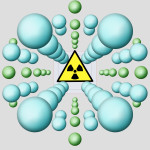 Occasional Paper #23: CNS researchers offer governments a roadmap to replace high-risk radioactive sources with non-isotopic alternatives.
Occasional Paper #23: CNS researchers offer governments a roadmap to replace high-risk radioactive sources with non-isotopic alternatives. - The Case for Highly Enriched Uranium Free Zones
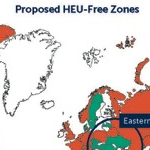 Regional HEU-free zones would help cement a global norm against civilian HEU use and strengthen nonproliferation and disarmament efforts.
Regional HEU-free zones would help cement a global norm against civilian HEU use and strengthen nonproliferation and disarmament efforts. - A New Roadmap to Minimize and Eliminate HEU
 Despite progress, risks posed by highly enriched uranium remain. A new joint report from CNS, NTI, and FMWG lays out a roadmap with five pathways to ending civilian and naval HEU use.
Despite progress, risks posed by highly enriched uranium remain. A new joint report from CNS, NTI, and FMWG lays out a roadmap with five pathways to ending civilian and naval HEU use. - Russia Becomes the Middle East’s Preferred but Flawed Nuclear Partner
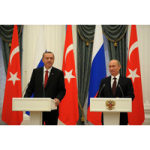 With little notice, Russia is on the verge of becoming the nuclear Wal-Mart of the Middle East.
With little notice, Russia is on the verge of becoming the nuclear Wal-Mart of the Middle East. - Syria Agrees to Return Highly Enriched Uranium to China
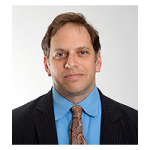 Miles Pomper comments in Al-Monitor on Syria’s decision to repatriate highly enriched uranium to China.
Miles Pomper comments in Al-Monitor on Syria’s decision to repatriate highly enriched uranium to China. - How South Korea Can Take Advantage of Nuclear Cooperation with the United States
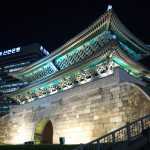 Seoul needs to bolster its cadre of technical policy experts in order to take full advantage of the new US-ROK nuclear cooperation agreement.
Seoul needs to bolster its cadre of technical policy experts in order to take full advantage of the new US-ROK nuclear cooperation agreement. - The Future of US-ROK Nuclear Cooperation
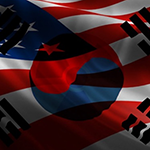 Critics of the new US-ROK nuclear cooperation agreement overlook the future of Korea’s nuclear program and energy security.
Critics of the new US-ROK nuclear cooperation agreement overlook the future of Korea’s nuclear program and energy security. - China’s Ambitious Plans for Nuclear Energy
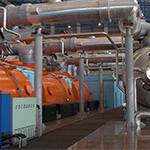 Analysis of China’s nuclear nuclear energy program and potential exports by Stephanie Lieggi and Miles Pomper.
Analysis of China’s nuclear nuclear energy program and potential exports by Stephanie Lieggi and Miles Pomper. - Safeguards and Middle East Issues Signal Contention at the 2014 IAEA General Conference
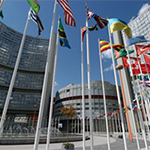 CNS and VCDNP experts review main issues facing the 2014 IAEA General Conference.
CNS and VCDNP experts review main issues facing the 2014 IAEA General Conference. - NATO’s Post-Ukraine Nuclear Policy—The NATO Summit
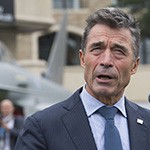 This week’s NATO summit may mark a turning point away from US-Russian arms control and could lead to a renewed emphasis on nuclear weapons.
This week’s NATO summit may mark a turning point away from US-Russian arms control and could lead to a renewed emphasis on nuclear weapons.
Select Bibliography (Recent)
- “The Proliferation of Weapons of Mass Destruction in the Modern World: Trends and Changing Regimes,” in International Politics in Times of Change, Nicholas Tzidakis, Ed. Springer 2012.
- “How to Unsnag US-South Korea Nuclear Negotiations,” Bulletin of the Atomic Scientists, September 25, 2012.
- “Nuclear Power and Proliferation: The Risks of the Nuclear Renaissance,” in Nuclear Power and Energy Security in Asia, Rajesh Basrur, Cole Harvey, Koh Swee Lean Collin, eds., (New York, NY: Routledge, 2012).
- “The Seoul Nuclear Security Summit: How Much of a Success?” Academic Paper Series, Korea Economic Institute, May 23, 2012.
- “Domestic and International Politics of Spent Fuel in South Korea: Are We Approaching Meltdown?” with Seong-Won Park and Lawrence Scheinman, Academic Paper Series: On Korea, Vol. 4, Korea Economic Institute, 2011.
- “Going Global: Issues Facing South Korea as an Emerging Nuclear Exporter,” with Chen Kane and Stephanie Lieggi, Tomorrow’s Northeast Asia: Joint US-Korea Academic Studies, Volume 21, Korea Economic Institute, 2011.
- “The IAEA’s Political Balancing Act,” with Michelle Dover, World Politics Review, September 2011.
- “Bringing Belarus Back to the Table,” WMD Junction, September 20, 2011.
- “Toward the Global Norm: Supporting the Minimization of Highly Enriched Uranium in the Civilian Sector,” with Cole J. Harvey and David Slungaard, Issue Brief No. 12, Asan Institute, June 2011.
- “Japan’s Nuclear Crisis: The Fine Line between Security and Insecurity,” Bulletin of the Atomic Scientists, March 22, 2011.
- “Nuclear Power and Spent Fuel in East Asia: Balancing Energy, Politics and Nonproliferation,” with Ferenc Dalnoki-Veress, Stephanie Lieggi, and Lawrence Scheinman, The Asia-Pacific Journal vol. 25, June 21, 2010.
- “US International Nuclear Energy Policy: Change and Continuity,” Nuclear Energy Futures Paper #10, Centre for International Governance Innovation, January 2010.
- “Reducing and Regulating Tactical (Nonstrategic) Nuclear Weapons in Europe: Moving Forward?” with Johan Bergenas, William Potter, and Nikolai Sokov, April 2010.
- “Managing U.S. Missile Defenses and Russian Concerns,” with Dennis Gormley and Nikolai Sokov, Four Emerging Issues in Arms Control, Disarmament, and Nonproliferation: Opportunities for German Leadership, James Martin Center for Nonproliferation Studies, July 14, 2009.
- “Reducing and Regulating Tactical (Nonstrategic) Nuclear Weapons in Europe,” with William Potter and Nikolai Sokov, December 2009.
- “The Russian Nuclear Industry: Status and Prospects,” Nuclear Energy Futures Paper #3, Centre for International Governance Innovation, January 2009.
- “Congress, Culture, and the Caspian,” with David King, in The Limits to Culture: Foreign Policy, Islam, and the Caspian, Brenda Shaffer, ed., (Cambridge, MA: Belfer Center for Science and International Affairs, 2006).
